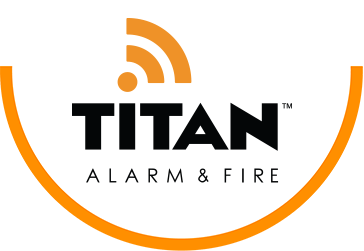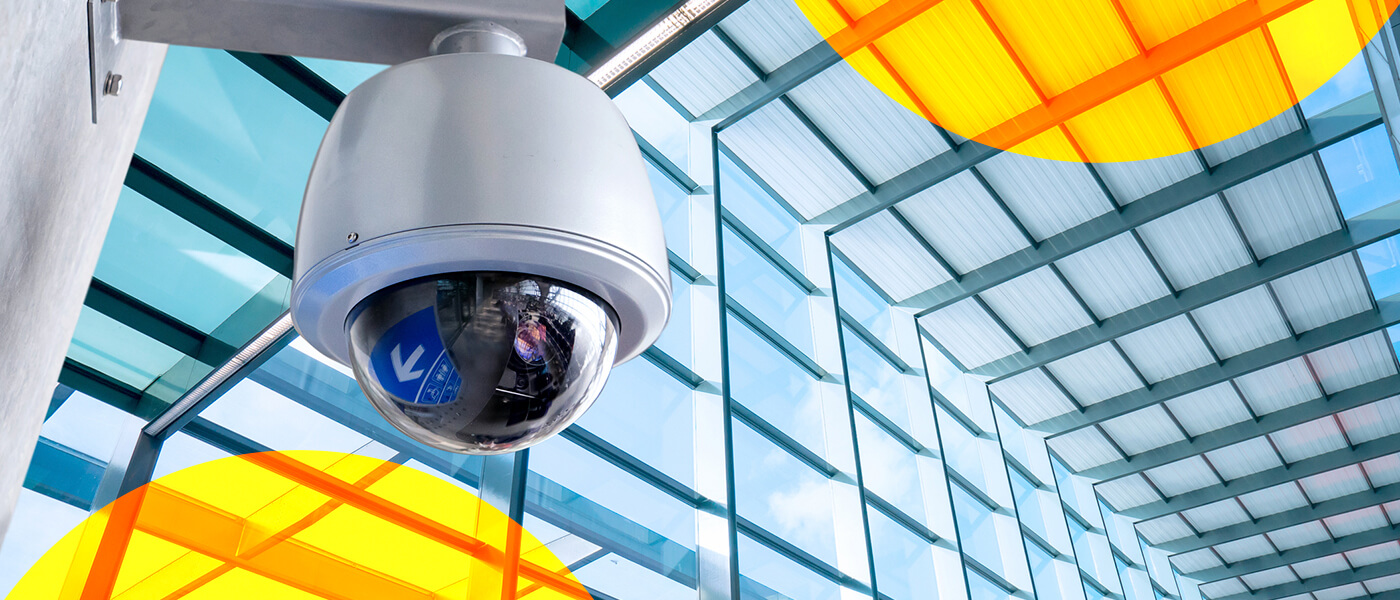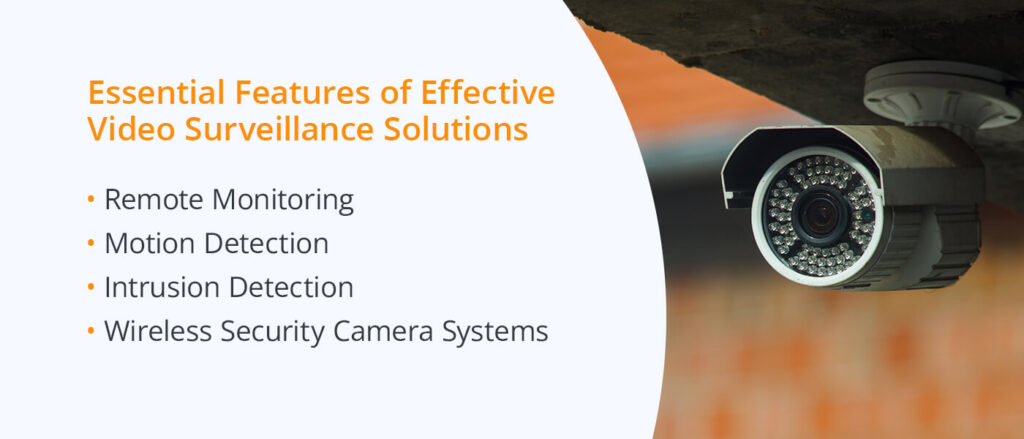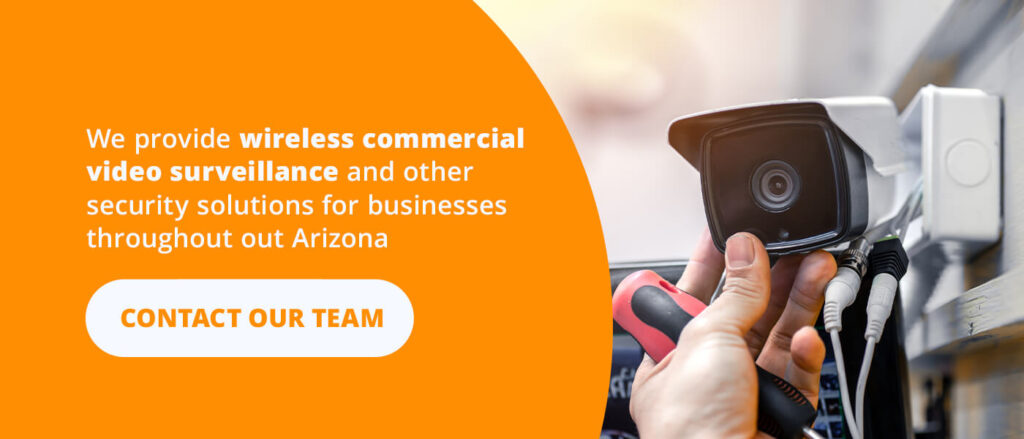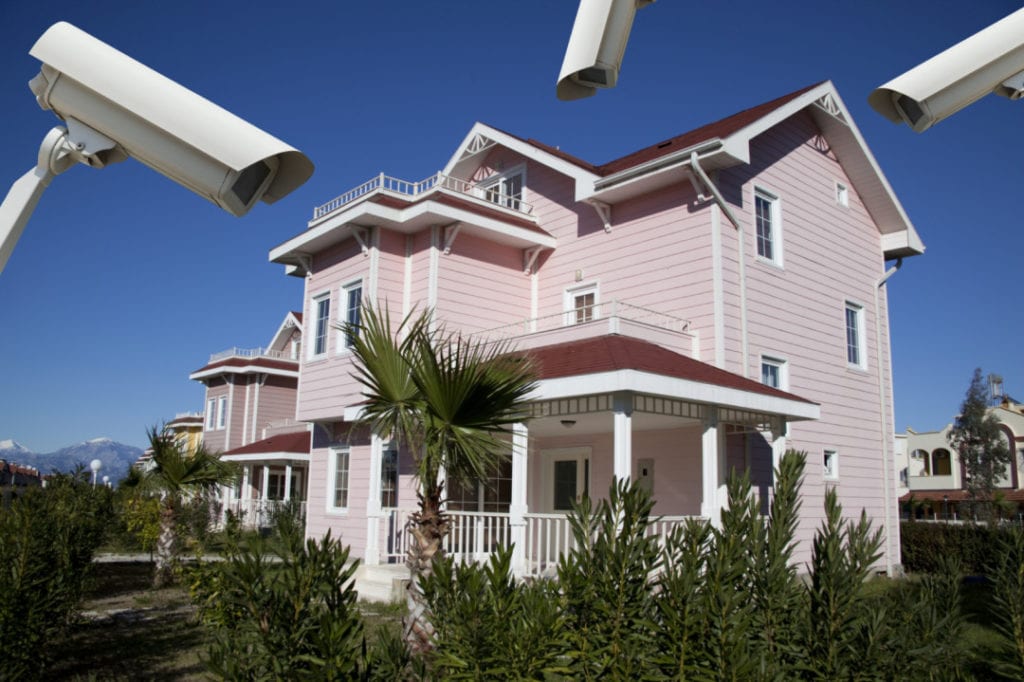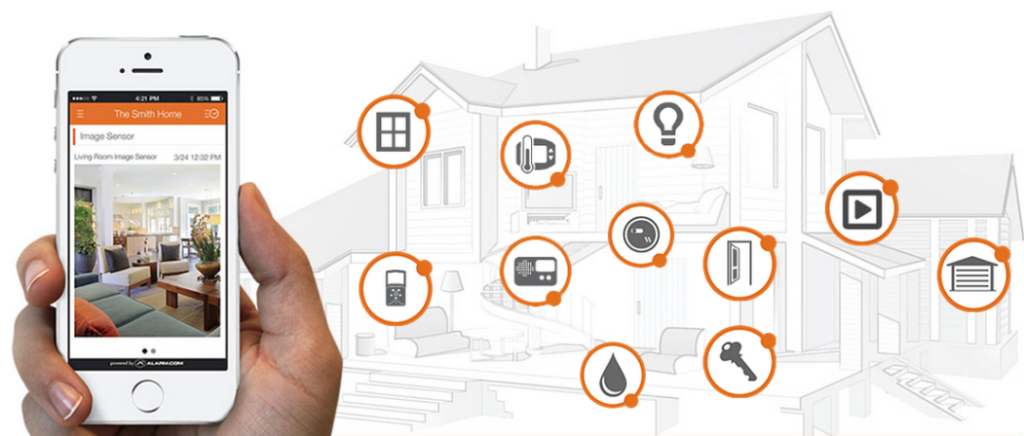Internet protocol (IP) cameras represent the latest in digital video camera technology and are invaluable video surveillance tools for homes and businesses. Unlike outdated analog camera technology that relies on the use of closed-circuit television, IP cameras deliver and receive data via the internet and computer networks, which provides enhanced video surveillance capabilities. The following facts can help you make a more informed decision when purchasing IP cameras for your Phoenix-area residence or business.
1. IP Cameras Resolution Offers More Detail
Analog cameras are limited to a resolution of 720×480, regardless of the cost or power of the camera, IP cameras have no limitation on resolution, which many models exceeding the 1080P HD-quality resolution we experience on our HDTVs at home. This results in more usable images, with the ability to electronically enhance the image after the event has occurred and receive greater detail than traditional video.
Resolution for IP cameras is normally referred to as 720p or 1080p, which are standard resolutions. An important difference between analog and IP cameras is the manner in which resolution is measured. IP cameras use new technology that measures resolution in pixels rather than in horizontal lines like old analog cameras did. Resolution refers to the number of pixels, which are the tiny areas of illumination on a display screen that form the image. High-resolution cameras feature a greater number of pixels than low-resolution cameras, which means they have enhanced capabilities to capture and display more information, and with greater detail and clarity.
While 720p and 1080p are both regarded as standard IP camera resolution, there are some important distinctions between the two. For instance, a 1080p image actually provides twice the amount of detail as a 720p image. However, the 1080p also consumes twice as much bandwidth, which can result in slower streaming and cause storage capacity to fill up twice as fast. Additionally, 1080p IP cameras are typically more expensive than 720p models.

2. 1080p Is Also Known as Full HD Resolution
It can produce images that are 1920 x 1080 pixels, and the height of the image is normally how the resolution is determined. For example, 720p images are measured at 1280 x 720 pixels. This means full IP camera resolution provides more than twice the number of pixels than standard resolution. Consequently, 1080p cameras are often marketed as being the equivalent of two 720p cameras.
There are also a number of important differences between standard and full HD resolution cameras, as well as several significant similarities. For instance, the signal transmission distance of the 1080p camera is up to 1,640 feet, compared to 984 feet for 720p camera systems. Both systems make use of a single coax cable to transmit video, audio and control signals. They also provide roughly the same night vision capabilities, as well a similar number of nonstop recording hours.

3. IP Are The Best Security Cameras for Facial Recognition
It is crucial that a security camera provides images with the high degree of clarity that enables easy identification of an intruder and other important crime details. Otherwise, it offers little value from a security perspective. One of the major disadvantages of using analog cameras for video surveillance is that they often fail to provide enough detail to aid law enforcement or security personnel during the identification process.
If you want to use cameras for facial recognition, to monitor crimes or to view license plates, then IP is the way to go. To maximize the ID potential of your video surveillance system, consider bearing the additional cost of a full resolution HD 1080p camera. It just might make the difference when attempting to identify and apprehend a home intruder or determining the perpetrator of internal theft within your company. In the world of video surveillance, you can’t go wrong with IP if you want amazing detail in your videos.

4. Phoenix Video Surveillance Is Changing
The video surveillance world has changed. For more than 30 years, analog cameras were the main video surveillance systems. While analog cameras served a valuable purpose, they simply no longer provide the most effective security solution for residential and commercial property owners in the Phoenix area. Because analog video uses a fixed video signal through a coaxial signal, it can be tapped into or altered. IP cameras have encryption and security levels built in, providing increased security over your video images. While IP camera resolution is far superior to that of analog cameras, IP cameras also offer a number of other important advantages over analog technology.
For example, long-distance surveillance applications are much more difficult to execute with analog camera systems. While wireless analog technology is available, you may experience interference that can result in a significant reduction in signal quality when compared to IP wireless camera systems. Additionally, analog security camera systems typically do not provide the variety of advanced features that modern IP systems have to offer. Thus, the Phoenix video surveillance world has been continuously moving away from analog cameras and going toward IP cameras.

5. IP Cameras Are Versatile
If you are looking for security cameras that connect to networks, IP cameras offer a distinct advantage over analog models. With analog cameras in video surveillance, you were extremely limited because of reliance on power outlets and cable lengths. This made long-distance and remote connectivity problematic at best, and in many instances, virtually impossible. What’s more, this makes analog cameras incompatible with many of today’s wireless network operating environments.
With IP cameras, you can easily connect to your network to share data with your system. You can even install and deploy an IP-based surveillance camera system using your existing network architecture. Think of how much that can save you in terms of time, labor costs and maintenance. Using wireless IP camera systems that connect to networks without having to install miles of cabling also provides maximum camera placement flexibility. As a result, you may experience greater coverage of the areas that require monitoring on your property.
Also, analog signals are converted several times. The camera itself typically uses a digital image sensor, which converts the signal to analog to transmit it. Once the signal is received into a recorder, it is converted back to digital again in order to process, record, and distribute it. Each time the video is converted it loses quality. With IP cameras, the data is kept in digital format throughout, maintaining quality with minimal loss.

6. IP Cameras Offer Cost-Effectiveness
As the cost of IP cameras has reduced over the past few years, the total cost of ownership tends to be lower with IP than analog systems. They are faster and simpler to install, due to technologies like Power over Ethernet (PoE). They consume less power, resulting in a “greener” camera environment. The end result is a higher quality system that delivers better images, better security, and is far less expensive to implement in most applications.
Some believe IP cameras may not be as cost-effective as analog cameras. This is mainly because IP camera systems generally require a higher upfront expenditure that analog systems, primarily due to greater cost of the cutting-edge technology. This often causes prospective buyers to forgo the best security system for their needs in an effort to reduce expenses.
It is true that IP cameras require a larger upfront investment, but they have advanced features that aren’t available with old technology. Examples include radar and thermal imaging and state-of-the-art motion-tracking technology that offer enhanced intrusion detection capabilities. They also include event verification that can more quickly confirm the presence of an intruder and reduce the amount of time it takes for emergency personnel to respond. The cloud recording capabilities eliminate worries about running out of tape, which would in effect leave your property unprotected.
Another way to think of it is that, while IP cameras are more expensive than analog cameras, their enhanced ability to prevent a loss actually makes them the more cost-effective security cameras in the long run. You will also have greater peace of mind, something that does not come with a price tag. CLICK HERE for more information about Phoenix video surveillance systems.

Other Features of IP Cameras That Make Them Better Than Analog
Camera Intelligence:
Advanced technology in software and hardware allow cameras to do much more than simply transmit a still video image. The software built into many cameras, as well as available through 3rd party applications, allows the camera to process the video and inform the end user of events like motion detection, people counting, traffic mapping, digital fence lines, and much more. The camera can also self-diagnose if it is not operating properly, or is being tampered with and notify the end user or a central monitoring center.
Fully Integrated:
IP cameras easily integrate into an IP network environment, utilizing network hardware and servers that many clients are already utilizing. This utilizes the initial investment of infrastructure for the system. Many IP cameras also have full featured software and storage built-in, allowing the camera to run independent of any other software. Analog cameras always require a DVR or server with additional hardware and increased bandwidth to perform these tasks.
Easily Scalable:
Analog cameras require physical transmission hardware to communicate between the camera and the recorder/server. IP cameras are able to utilize “virtual” hardware, allowing a camera to be utilized in multiple locations, even on opposite sides of the world, and have them operate as though the are on a single, local platform. IP cameras also have the ability to be upgraded through firmware upgrades as technology advances. This makes sure that the camera is able to scale and grow as new technology emerges or as needs of the end user evolve.
Progressive Scan vs. Interlace Scan:
IP cameras use progressive scan technology, meaning that fast moving objects appear and are recorded with sharper detail and less motion blur. This is demonstrated in the image below, which shows an interlaced image on the left, with a progressive scan image on the right. Both images are from an IP camera, but with different processing codecs for progressive vs. interlaced image:
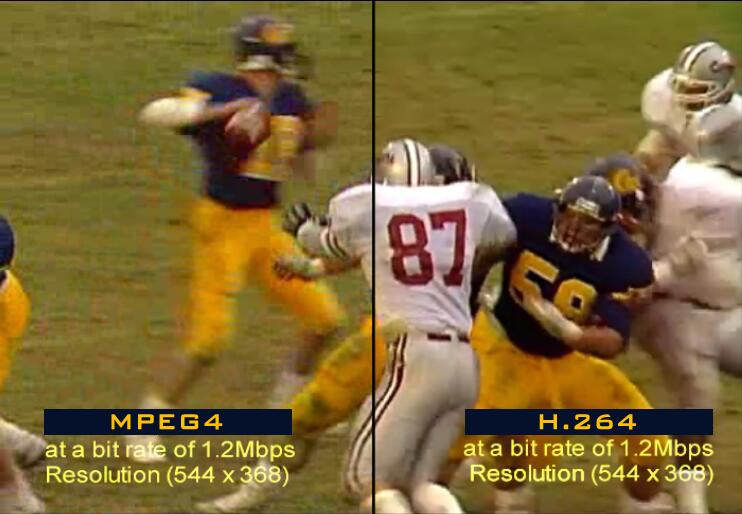
Open Standards and Plug-in Architecture:
Common technologies in IP cameras, such as H.264 compression and ONVIF compatibility ensure that cameras made from a variety of manufacturers will be compatible with one another and can work within many different software environments.
Built in Redundancy:
Many IP cameras have built-in storage, allowing the camera to either record without needing a dedicated recorder/server, or allowing the SD card to server as redundant backup. This ensures that the video image you are expecting to have is available when you need it.
Titan Alarm Inc.: Your Best Source for IP Camera Systems in the Phoenix Area
If you are ready to make the transition from analog to IP cameras or are looking for the most effective way to protect your Phoenix property, Titan Alarm can help. We offer an extensive selection of innovative IP camera systems equipped with the most technologically advanced features. As a full-service, locally owned and operated alarm company serving the greater Phoenix area, you can count on us for complete installation and service of your system. We don’t rely on 1099 contractors. All work is performed by well-trained, highly skilled Titan Alarm employees who are committed to keeping your property as safe and secure as possible.
Contact Us to Learn More About Our Cost-Effective Security Cameras
Contact us if you want to learn more about Phoenix video surveillance systems. You can reach us online or give us a call toll-free at 1-800-973-9001 for friendly, personalized assistance.
Updated by Titan Alarm on November 5, 2018.
